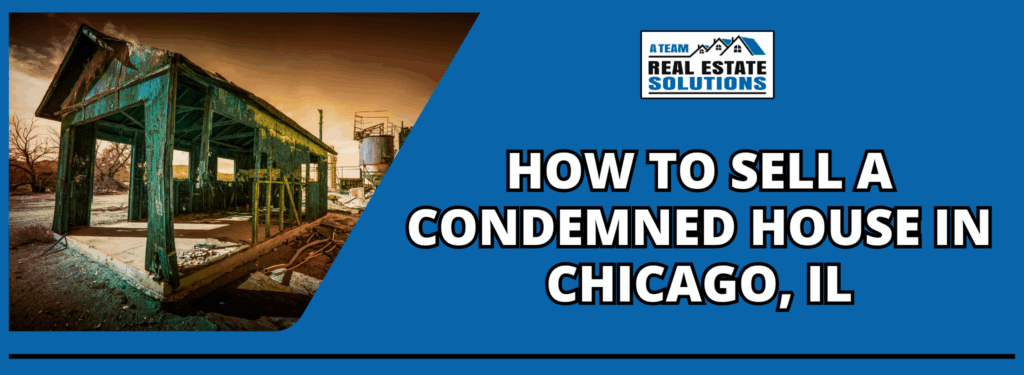
The Legal Process of Selling a Condemned Property in Chicago
To sell a foreclosed home in Chicago, you must go through a complicated legal process and pay close attention to the city’s rules and laws. Property owners need to know that getting legal paperwork from the City of Chicago outlining the exact reasons for condemnation is the first thing that needs to be done before they can sell a property that has been condemned.
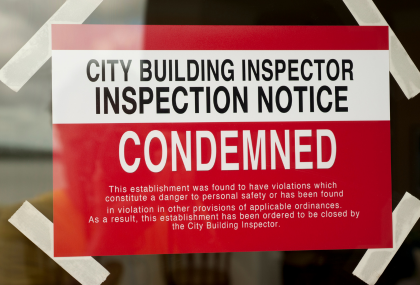
This paperwork will show if any safety or building code issues must be fixed before the sale. Working with an experienced real estate lawyer who knows Chicago’s city code can be very helpful during this process.
They can help you talk to city officials about lifting the condemnation by fixing or improving the property as needed, if possible. In addition, sellers must tell potential buyers that the property has been seized, or they could face legal consequences.
It’s also important to know about zoning laws and land-use rules, as these can affect potential buyers’ interests and limit what can be built on the property in the future. By fully understanding these legal requirements and working closely with experienced professionals, sellers can handle the complicated steps to transfer ownership of a condemned Chicago property.
Assessing the Value of Condemned Real Estate in Illinois
To determine the worth of condemned property in Illinois, especially in a place like Chicago, you need to know many things that affect property appraisal. First, it’s important to assess the building’s condition and determine how much it will cost to fix it so it meets code.
This must be scrutinized by professionals who know the Illinois building rules. Location is critical. Even if a house has been condemned, it may be worth more if it is close to nice neighborhoods or new construction projects.
Market trends in many areas of Chicago should be examined to see if investors can make money. Learning about zoning rules and the possibility of rezoning can also lead to new redevelopment opportunities.
Working with local real estate experts who deal with foreclosed homes can help you determine the price to charge for your property based on similar sales in the area and the challenges of selling a condemned house in Illinois.
Renovate or Sell As-is: Making the Best Decision for Your Condemned House
Homeowners in Chicago, IL, must consider several important factors when choosing whether to fix up and sell a foreclosed home. The most important things to consider are the property’s state and the costs of bringing it up to code.
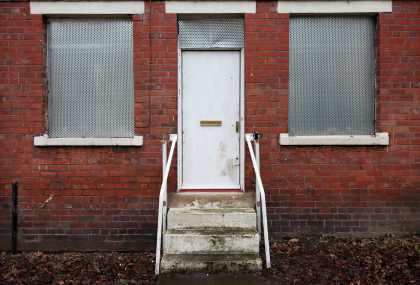
In Chicago’s competitive real estate market, fixing up a foreclosed house could make it worth much more on the market, bringing buyers who want homes ready to move into. However, because of strict city rules and licenses, the renovation process can be expensive and take a long time.
On the other hand, investors or developers looking to flip houses in new areas might be interested in buying the property as-is. Most of the time, these owners have the money to do significant repairs themselves.
Sellers need to examine how the Chicago market is changing and talk to real estate buyers specializing in foreclosed homes to determine which choice best fits their financial goals and timelines.
What are the Zoning Laws for Selling Condemned Properties in Chicago
When selling a foreclosed home in Chicago, knowing how to deal with the city’s complicated zoning rules is essential. Knowing about local laws and zoning rules can distinguish between a quick sale and a long court battle.
In Chicago, condemned buildings often have strict rules that must be followed before they can be turned over to someone else. Determining if the property is in a residential, business, or mixed-use zone is important, as each has rules that could affect the selling process.
Talking to a real estate lawyer specializing in Chicago’s zoning laws can help you determine what steps you need to take to follow the rules and what changes you might need to make to meet the standards. Working with city officials to get permits or variances can also make negotiations with possible buyers go more smoothly.
In the competitive Chicago real estate market, handling these zoning problems ahead of time can make sellers’ properties more appealing and speed up the closing process.
Working with Local Authorities on Condemnation Issues
You must work closely with the local government to get through the complicated process of selling a condemned house in Chicago, Illinois. Talking to the Department of Buildings and the local zoning board can help you determine exactly what code violations or other problems caused the property to be condemned.
By getting to know these organizations beforehand, sellers can better understand what repairs or changes need to be made to get the condemnation order lifted. This partnership makes it easier to follow city rules and makes the land more appealing to people who might want to buy it.
Also, getting thorough reports from inspectors and going to hearings can help you figure out how to solve legal or safety problems that are still open. Streamlining contact with city halls ensures that all paperwork is filled out and sent in correctly, which can speed up things like getting the permits or variances needed for rehabilitation.
In the end, using these connections makes it easier to sell a foreclosed home by eliminating major problems that might turn away potential buyers otherwise.
How to Handle Liens and Back Taxes on a Chicago Condemned Property
Liens and back taxes on a condemned Chicago home require careful legal planning and navigation. The first step is a full title check to determine whether liens, tax debts, or other claims are attached to the property.
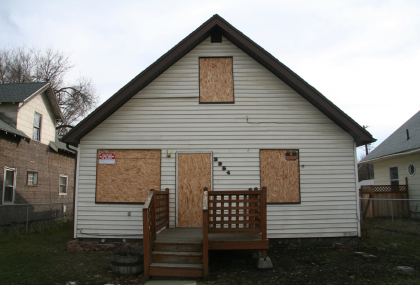
Working with a real estate lawyer who knows Chicago’s rules and laws can be very helpful when trying to negotiate settlements or lower amounts for outstanding liens. It’s also important to contact the Cook County Treasurer’s Office to find out how much back taxes are owed and to look into payment plans or tax relief programs that might be available.
Knowing the Illinois state rules about lien priority can help you determine which debts must be paid immediately to quickly clear the property’s title. By taking these financial steps ahead of time, buyers can significantly increase their chances of successfully selling a Chicago condemned house, even though it comes with many complicated financial problems.
Financial Considerations When Selling a Condemned Property
When trying to sell a foreclosed house in Chicago, money is one of the most important things you need to consider. First, knowing how much the property is worth on the market is essential because that affects how much to ask for it and how the buyer negotiates.
People who want to sell their homes should set aside money to make any repairs or changes that will make them more appealing to investors who want to buy properties that need work. Also, it’s essential to consider any debts or back taxes that might prevent the sale.
Hiring an experienced real estate buyer who knows Chicago’s rules about foreclosed homes can give you helpful information about how to set prices and help you deal with complicated legal issues. Also, sellers should consider whether they want to accept cash offers from real estate investors who buy distressed homes. These buyers often offer quick closings with no conditions.
Steps to Prepare Your Condemned House for Sale
To successfully sell a foreclosed home in Chicago, Illinois, you need to do a lot of planning ahead of time. Start by getting a full inspection of the property to determine its problems and how much they will cost to fix.
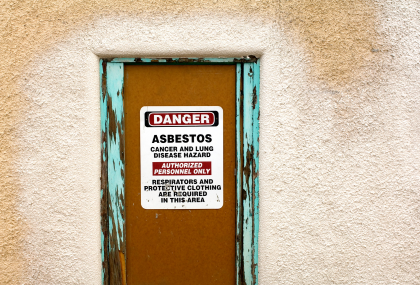
To make the house more appealing to buyers, fix any safety issues, like damage to the structure or electrical issues. You might also want to hire a professional cleaning service to make the house look better and eliminate any smells that might turn people off.
If you can afford it, make small changes to improve your home’s curb appeal, like painting the walls or replacing broken fixtures. Talk to local home buyers who specialize in selling foreclosed homes to learn more about the market and how to set prices.
Ensuring all legal papers, such as zoning laws and permits, are up-to-date can speed up the selling process. If you market your house well online with high-quality pictures showing its potential, you can attract cash buyers or investors who want to flip properties.
How to Find Prospective Buyers for a Condemned House
If you want to sell a foreclosed house in Chicago, Illinois, it can be hard to find buyers, but it’s not impossible. One promising approach is to go after real estate investors who buy properties in bad shape.
These buyers often look for opportunities to buy houses for less money, fix them, and sell them for a profit. Joining a local real estate investing group or attending a networking event can help sellers connect with these possible buyers.
People looking for renovation projects may also be interested in whether the property is listed on websites catering to fixer-upper fans. Using real estate groups and social media sites geared toward the Chicago area can also help you reach more interested people.
Working with a seasoned professional who knows how to buy for cash and has a network of cash buyers familiar with the complicated process of buying foreclosed homes in Chicago can also help you find good buyers quickly.
Negotiating Offers on a Distressed or Condemned Home
When offering a foreclosed or troubled home in Chicago, IL, discussing the property’s problems and possible buyer benefits is important. To get people interested in buying your home, you should first learn how the local real estate market works and then set a competitive price.
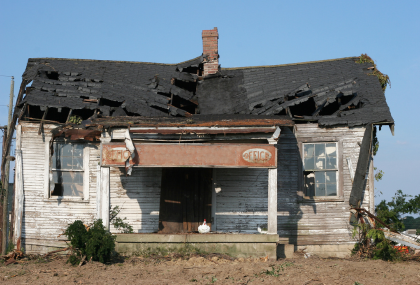
Being honest about the property’s state and any repairs or demolitions needed will help potential buyers trust you. Drawing attention to the investment possibilities, like selling the property for a profit or turning it into a rental unit, can attract investors looking for good deals.
To make the deal more appealing, you could offer benefits like paying for the closing costs or letting the buyer choose when they want to move in. Working with a real estate buyer who knows how to deal with foreclosed homes can help you get fair offers and get through the negotiation process.
In a competitive market like Chicago’s, your foreclosed home will be more appealing if you know what buyers want and are open to creative financing options. A Team Real Estate Solutions is here to help guide you every step of the way even when you are dealing with vacant house in Chicago, contact us today to get started.
Common Challenges Faced When Selling a Condemned House and How to Overcome Them
People in Chicago, IL, face many problems when selling a condemned house. One big problem is that the property is in bad shape, which can turn off potential buyers and lower interest.
To circumvent this, sellers should focus on getting a thorough inspection report showing exactly what repairs and renovations are needed. It can also be difficult to understand the complicated legal requirements associated with Chicago’s foreclosed homes.
Buyers must work closely with real estate buyers who know the local rules to ensure they follow them and the deal goes smoothly. Another important factor is setting the right price for the property. A competitive price that considers both the market worth and the cost of any repairs that need to be made can attract more buyers.
Marketing plans should highlight any unique features or opportunities for redevelopment to attract buyers looking for renovation projects. In Chicago’s real estate market, sellers can improve their chances of successfully selling a foreclosed home by preparing for these common problems and getting professional help. We buy houses in Chicago and know that offering incentives like covering closing costs or including home warranty packages can help your property stand out in a competitive market, attracting faster offers from motivated buyers. You must first get a clear picture of your financial standing if you’re looking to sell your house fast in Illinois, Evanston, and Hoffman Estates during condemnation.
Traditional Sales vs Auctioning Off Your Distressed Home
People in Chicago, IL, who want to sell a foreclosed home often consider the pros and cons of both standard sales and auctions. In a normal sale, the damaged property is listed with a real estate buyer who knows how to deal with homes declared bankrupt.
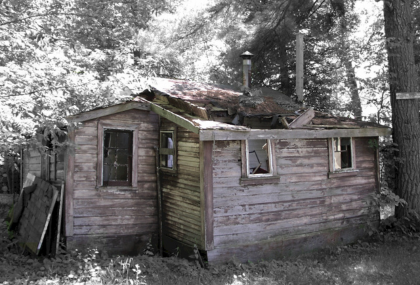
This method gives you more control over the selling process, including setting the price and talking with buyers who might want to fix up the house. However, it can take a long time because repairs and checks need to be done.
On the other hand, auctioning is faster and can attract investors looking for homes that need work at possibly cheaper prices. When there are auctions, buying is competitive, which can speed up the process but also means getting less than the market value.
Knowing these differences helps people in Chicago’s real estate market choose the approach that best fits their goals and time frame when they are dealing with a distressed home.
| CHICAGO ILLINOIS | REALTORS | UNITED STATES | UNITED STATES OF AMERICA | U.S. | USA |
| EMINENT DOMAIN | FORECLOSURE | FORECLOSED | FORECLOSURE SALE | BUILDING STANDARDS | |
| FEES | MONEY | INFORMATION | PROPERTY OWNERSHIP | MORTGAGE | LAWYER |
| EXPENSES | HYGIENE | VIRGINIA | SQUATTERS | UTILITIES | PROPERTY TAXES |
| PLUMBING | NAPERVILLE | LOAN | JOLIET | ELGIN | ELECTRICAL SYSTEMS |
| ELECTRICITY | COMPANY | APARTMENTS | MY HOUSE FAST | CASH HOME BUYERS | YOUR HOUSE FAST |
| SELL MY HOUSE | WE BUY HOUSES | IF THE HOUSE | ON THE MARKET | THE HOUSE IS | SELL YOUR HOUSE FAST |
| A HOUSE DURING DIVORCE | SELL A HOUSE BY | SELL A HOARDER HOUSE | A HOUSE IN FORECLOSURE | YOU SELL A HOUSE | GROUNDS FOR HOUSE CONDEMNATION |
| A HOUSE BY OWNER | SELL MY HOUSE FAST | YOU SELL A CONDEMNED | A HOUSE IN PROBATE | THE PROPERTY HAS BEEN | TO SELL YOUR CONDEMNED |
| TO SELL YOUR HOUSE |
![Selling House To A Cash Home Buyers in [market_city]](https://image-cdn.carrot.com/uploads/sites/48444/2026/02/Selling-House-To-A-Cash-Home-Buyers.jpg)
